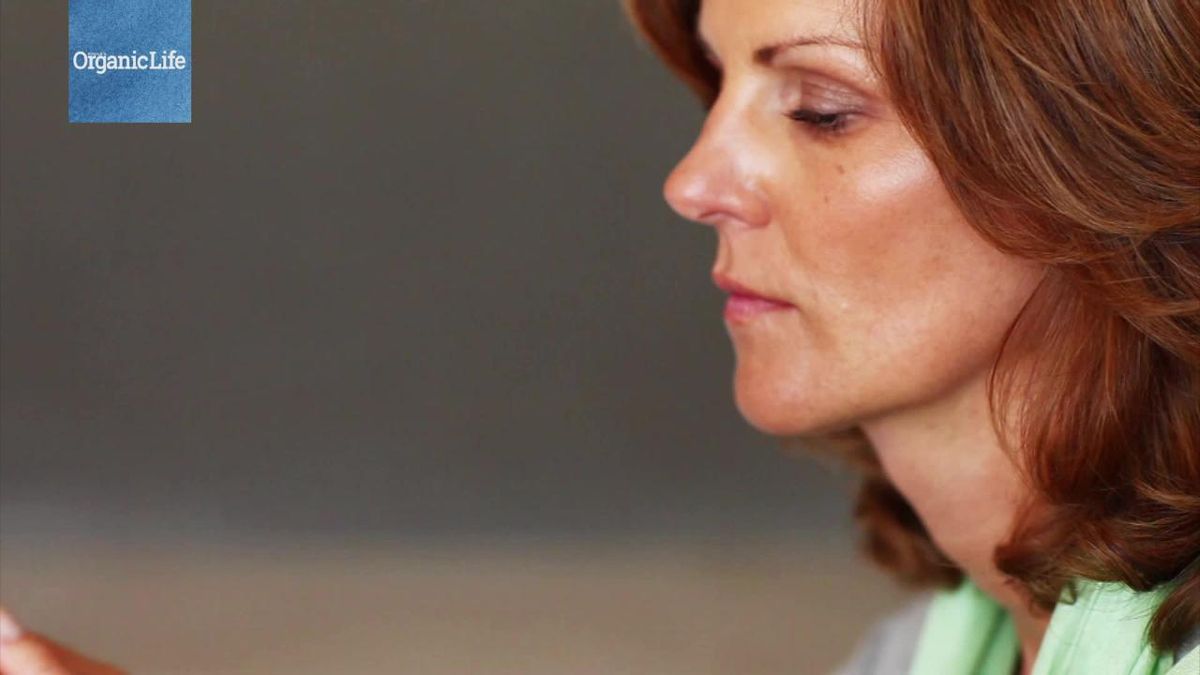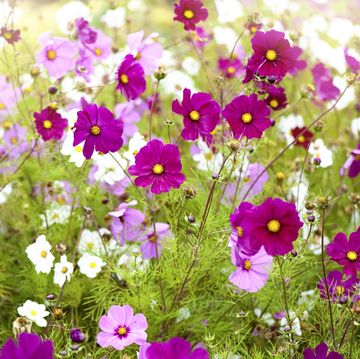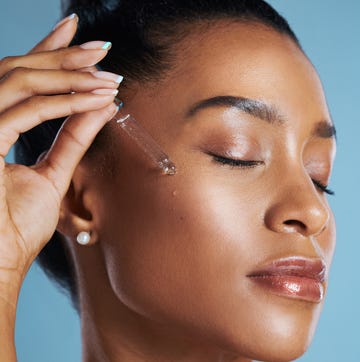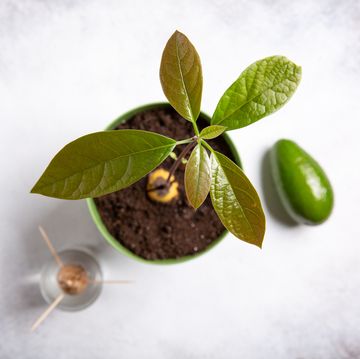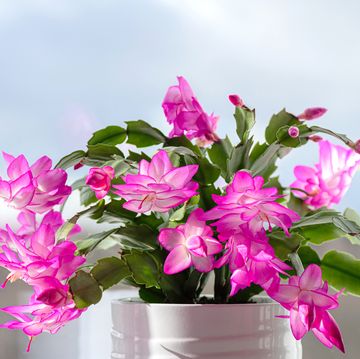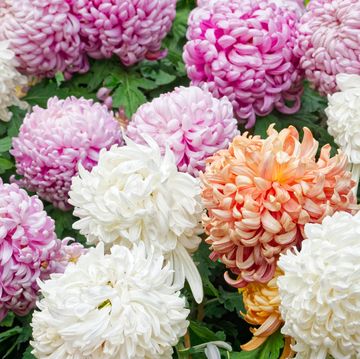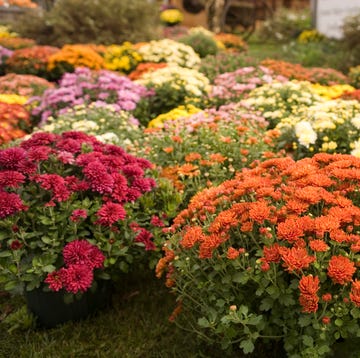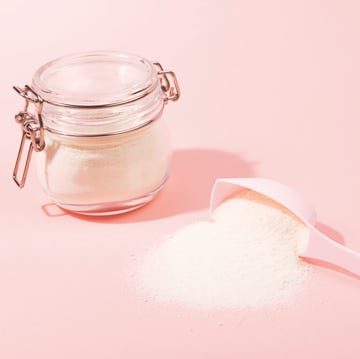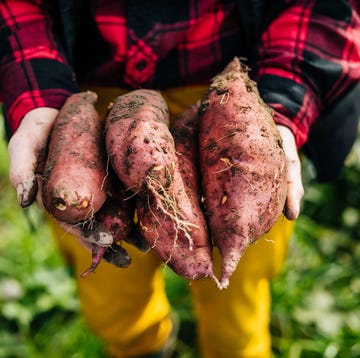I looked nothing like a grandma, but my doctor called my pregnancy at 43 “geriatric,” which was better than the health insurance “diagnosis” of elderly primigravida—both medical terms for pregnancy in a woman over 35.
Mothers-to-be are warned about the risks of later in life pregnancy, including an increased likelihood of birth defects or miscarriage, and of potential challenges of being an older mother. Still, more women than ever are delaying motherhood. According to 2016 government figures, the birth rate for women 40 and over is at a 50 year high. And while there may be some age-related challenges for later-in-life moms, there are also many advantages.
My own pregnancy at 43 was uneventful and healthy; I worked, and swam thrice weekly right up to my due date, and my son had none of the developmental issues or mutations I was advised to test for. I easily bounced back from pregnancy—with the exception of the baby weight, which came off slowly.
(Brag your love of gardening with the Organic Life 2018 Wall Calendar, featuring gorgeous photographs, cooking tips and recipes, plus how to eat more—and waste less—of what's in season.)
Figuring out where exactly I fit in
While older moms are more common than ever, we’re still a minority. That was evident at a new mommy brunch I attended at a trendy café filled with fresh-faced, already back-in-shape new moms. A Cyndi Lauper song filled an awkward gap in the conversation. I remarked to the young mommy next to me how the song was one of those that instantly brought you back to the time it was first popular. For me, it brought back last call at music clubs during my single days. For her, that was slow dancing in the school gym. I took comfort in knowing Cyndi Lauper was an older mom herself.
Related: My Secret To Sane Parenting: Give Yourself Time To Do Absolutely Nothing At All
Being an older mom also meant I was out of step with friends my own age who were navigating middle school math homework while I was figuring out how get around on the subway with an infant. However, there are advantages to being out of phase with your peers in this way. Mixing it up with people a decade plus younger has meant that I’ve been the first kid on my peer group block to use social media or Spotify. It’s not easy to step outside my comfort zone, to bust the bubble of the shorthand of cultural reference I share with my peer group, but it’s as exhilarating as a good downhill run if you keep yourself open. (Here's more on how to do a digital detox when social media becomes overwhelming.)
Superficial friendships, already a challenge for me, are harder when there are less checkboxes like age in common. But shared interests emerge as the babies develop into little people with their own personalities, interests, and demands. The common ground in shared school and extracurricular experiences became the social glue as my son grew. Soon my role as working mom, more than my age, felt like the bigger divide.
Related: I Kept Traveling The World After I Had My Baby—Here Are My 5 Top Tips For Kid-Friendly Travel
Becoming a mother in a different stage of life
There are some inescapable facts about being an older mom. You are sandwiched between generational caregiving responsibilities. For me that that meant caring for my mother after a fall while juggling an early adolescent year of angst and growth, a time when you definitely want to be there for your child.
But career-wise I had more options than most of the younger mothers I knew. I went back to work at the end of my maternity leave and was established enough to have earned flexibility. I was able to take advantage of everything from job-sharing to a compressed workweek and remote working days. But the truth is, I’m no wiser than the younger mothers, just wiser than I would have been when I was younger, and that has impacted how I raise my son. I’m less inclined to base things on “when I was your age” because it was a dang long time ago. At his age, I’d be writing this on a manual typewriter, probably using carbon paper. I think my son genuinely respects me, not just because we taught him good manners, but because I’ve known who I was—and so did he.
Related: 10 Things Every Parent Should Teach Their Kids Before They’re 18
I’m wiser and more secure than I would have been when I was younger, and that has benefitted my son. Many of the new mommies I met were dealing with first apartments, new marriages and other family concerns that my husband and I, after being together for a decade, had already worked out. Having a child was more than the next step in our relationship, it had been planned, wanted, longed for, and finally hard won. That appreciation painted the emotional aspects of parenting a permanent rose color for me. I didn’t resent the demands of my colicky baby which left me with little time for myself, nor feel the need for the “fun escapes” the other (younger) new mommies planned. Parenting itself was a privilege.
Related: 6 Parenting Tips From Around The World That Only Sound Crazy To Americans
Because my identity was more firmly established, I could step back from those helicopter controls of parenting and let my son grow at his own pace. It’s meant my son had plenty of independence, and making his own decisions and mistakes has helped him to develop common sense and resilience that will serve him though life. British researchers have also found that children of older mothers are more likely to have better language development, and fewer social and emotional difficulties.
It takes a lot of energy, no matter your age
Energy comes up a lot when you read about older mothers, and yeah, I was tired when my son didn’t sleep through the night, or was too active to be confined to a stroller, leaving me to carry him in a sling or on my shoulders. To dissipate his energy, I enrolled him in swim classes. We’d race whenever we could with me holding back so we’d be close. That worked only until he was eight and he beat me in a two-lap race at a Poconos hotel pool, my 50-plus body unable to summon the power to overcome him at the end. In my defense, he now swims for an elite D3 team, so I doubt a younger mom would have fared better. Mothering takes a lot of energy, no matter your age.
Trying to practice more self-care? Learn about these six health benefits of reading more.
And, an unfortunate consequence of older momhood was that my metabolism slowed just as bake sales and classroom celebrations multiplied. That menopause-induced spare tire was not a good look in my outfit for the school fundraising gala. Hot flashes do nothing to center you in the face of an equally hormonal adolescent.
Related: Why I Sometimes Nix The Sitter And Drag My Kids To Grown-Up Stuff
There are some inescapable facts about being an older mom. While it is possible that my son could lose his parents sooner than his peers, a recent study in the American Journal of Public Health says that the odds of longevity were significantly higher in women who were older at first childbirth. Saving for college while saving for retirement is a strain on any household budget, and while older parents tend to be more financially secure, the proximity of a child’s college years to parents’ retirement can make this more challenging. Some older moms may have extended help from their retired parents, while others could be faced with additional caregiving responsibilities for their own parents.
More women than ever are delaying pregnancy because of later marriage, a focus on a career, or fertility, health, or financial factors. While there are risks and challenges to midlife motherhood, I can say from personal experience, there are so many benefits of waiting, too.

